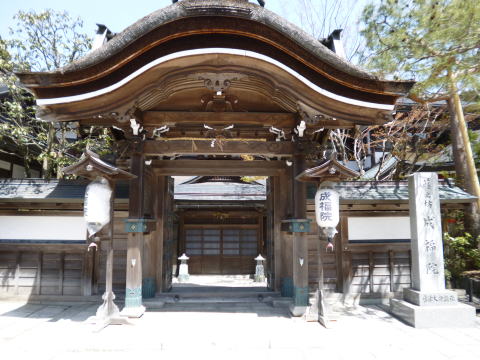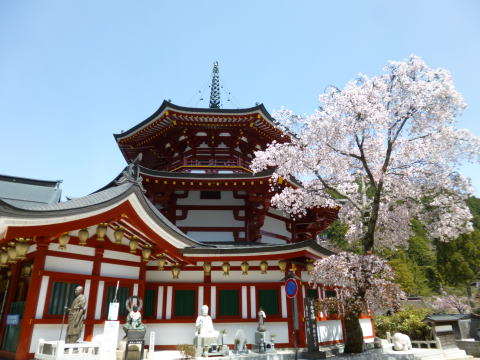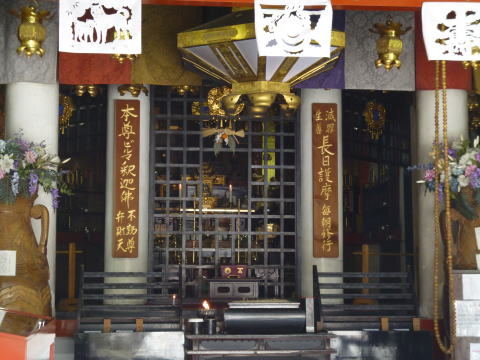Jofuku-in ![]()
![]()
Jofuku-in temple with Mani Hoto (Treasure Pagoda) is a quasi-special head
temple located in the Ojoin Valley of Mt. Koya, Wakayama Prefecture.
The principal
image is a wooden statue of Daizuikumyoo, which is said to be the Buddha who
erases the evil sins and hindrances that are hidden within oneself and makes
wishes come true.
According to the
Kii Shoku Fudoki (historical guide book), it was also called ``Fujinobo'' and
was completely destroyed in a fire in 1523.
It was rebuilt in
the Tenmon era (1532-55) by the 192nd Kengyo of Koyasan, Gyoei Chogenbo.
During the Edo
period, it belonged to the scholarly clan and had deep connections with the
Mori family, lords of Kiyosue castles in Chosyu province (Yamaguchi Pref.) the
Terasawa family, lords of Hizen Karatsu Castle in Kyushu, the Song family,
lords of Tsushima, and the Asukai family, nobles.
The former chief priest, Tenzui Ueda, who proposed the Mani Hoto (Treasure
Pagoda), went to Thailand in 1941 to study southern Buddhism, and after
the outbreak of World War II, he entered Burma and experienced the tragic
war, becoming a Burmese monk.
In 1944, he
miraculously returned alive with a Shakyamuni Buddha statue and the Tripitaka
Sutra given to him by Burma, and a pagoda was built to enshrine them, comfort
the spirits of those who died in the war in Burma, and offer a memorial service
to the victims of the Pacific War. started.
Construction of
Mani Hoto Pagoda began in 1952, and it was finally completed 26 years later.
Later, in order to
promote goodwill between Japan and Burma, a statue of Buddha was presented to
the shrine by former President La Ne Win, and a marble lion was presented to
the shrine by the Burmese High Priest U Sandi Maung Ta, both of which are on
display along with artworks.
In the basement of
the pagoda, there is a pilgrimage to the altar, where you can connect with the
Buddha by walking through a pitch-black corridor and touching the lock located
directly below the main image.
In 1981, a charnel
tower for the Burma war dead was erected in Okunoin.


